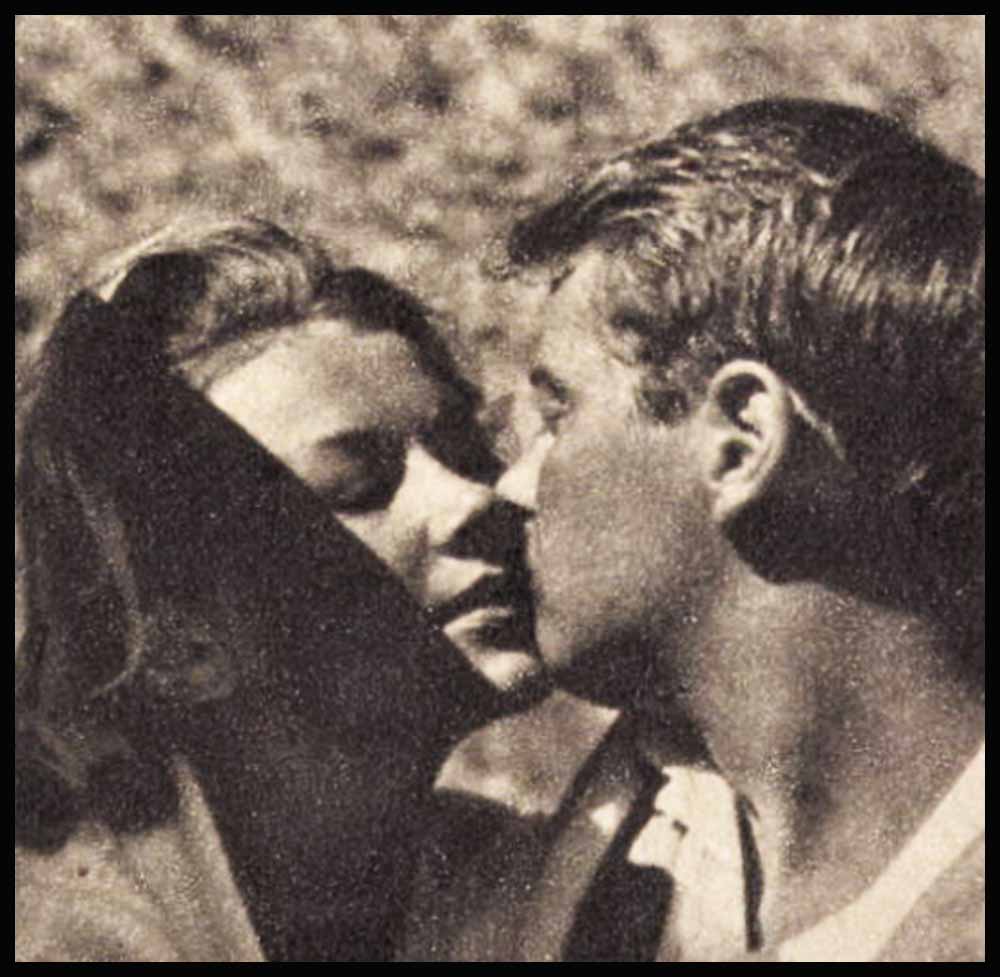
Two Nice Kids Engaged To Be Engaged
Troy Donahue stood at the side of the room watching her. Ever since he’d first seen her, surrounded by a group of admiring men, he’d felt like a schoolboy at his first dance. Ill-at-ease. Bashful. Afraid to approach her.
Hour by hour, as the candles in the jack-o’-lanterns in the room burned lower and lower, his self-confidence ebbed. She was the most beautiful girl he’d ever laid eyes on. Perfect. Out of a dream. Unattainable.
So he stood with his back against the wall as the Halloween party swirled around him. Watching only her. Usually he was sure of having a good line, of being able to talk anyone into or out of anything. But now his tongue was dry in his mouth.
A man in a devil costume put his fingers on her arm; then he tried to take off her mask, but laughingly she pushed him away. Troy felt jealousy, hot and searing, well up within him. He clenched his fists and started towards them. Then he let his hands drop helplessly to his sides. What a fool he was! He didn’t even know her name. He was acting like a love-sick calf. There were plenty of other girls at the party, beautiful girls. He’d show her. He’d have fun in spite of her!
A red-headed girl, costumed as Marie Antoinette, was dancing by in the arras of a bearded beatnik. Her eyes smiled at Troy, and immediately he tapped her partner on the shoulder and said, “May I cut in?’’
The beatnik didn’t turn around and he didn’t let go of the girl. He mumbled, “Go way, man, whoever you are. Can’t you see I’m . . . like flying . . . like in a dream. Don’t wake me up, man. I’m . . . like so far out I never wanna come back.” As he said this, however, he bumped into the punch table and had to turn around.
He looked up at Troy who, at six-feet- three and a half, towered above him. Then he let go of the girl and said, “Like l’m back on earth, man. She’s yours . . .” and he poured himself a glass of punch.
The girl in Troy’s arms was warm and cuddly. She rested her head dreamily on his shoulder as they danced. But as they moved around the room, he said to himself,”. . . like nothing,” and his eyes never left the face of the only girl in the room—the beautiful blonde in the mask.
At the end of the dance, he retreated to his place by the wall. He looked at his watch. Five minutes to twelve. At midnight she must take off her mask. And the wild fluttering of his heart told him she would be even more beautiful than she was now.
Twelve o’clock. He walked towards her but the red-headed girl and the beatnik barred his way. She was pulling at his beard, saying, “Come on. It’s time to be yourself.” “Ouch!” the beatnik cried, “like cut it out . . . I’m for real. The beard’s me.”
Any other time Troy would have laughed. But he pushed by them. He had to get to her.
But she wasn’t there. His eyes searched the room wildly. Where was she? Then he saw her—or rather he saw her back. She was leaving, and the man in devil’s costume had his arm around her.
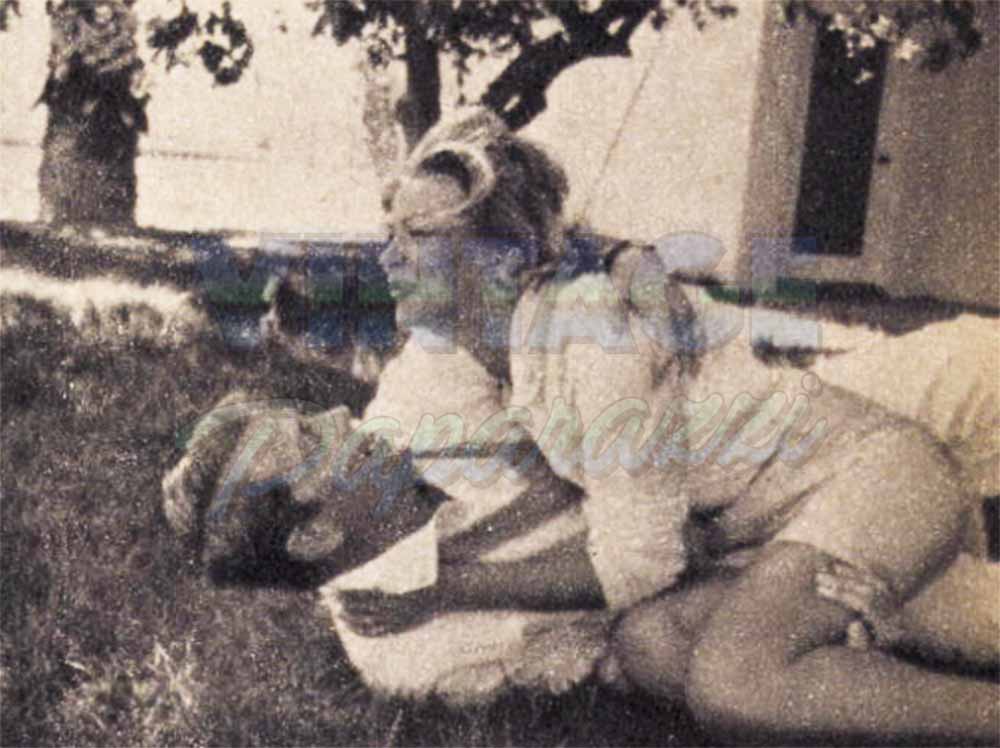
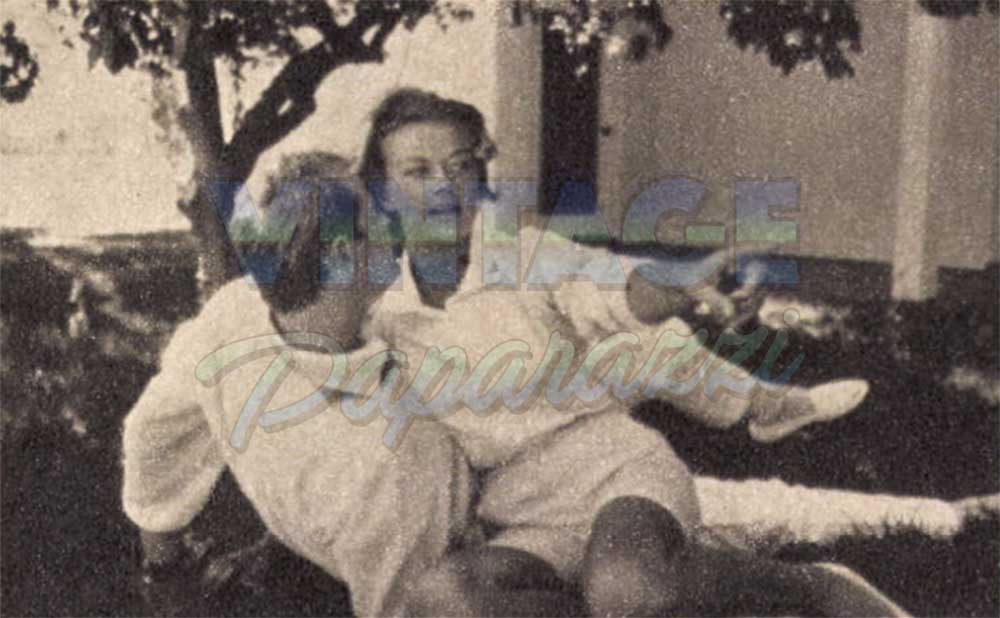
Troy almost ran towards her. He knocked into something and tripped over someone down on all fours in a Lassie costume. He apologized hastily and went on. The front door was closing. He was too late. But at the last minute she turned and looked over her shoulder. Her eyes were even more wonderful than he had imagined.
He smiled at her—a blushing, embarrassed grin. She smiled back. Then she was gone.
For Troy Donahue the party was over. He went to get his coat. There was Lassie, standing up on his hind legs and reaching for his hat. “Can’t get out of this costume ’til I get home,” a man’s voice confided to Troy. “My sister sewed me into it.”
On an off-chance Troy asked him, “Do you know the blonde girl who just left? The beautiful one who wore a blue mask all evening. The one with all the fellows around her. She just went out—with a devil.”
“Sure, I know her,” the man in the dog- suit answered. “Her name’s Lili Kardell.”
All this happened more than four years ago, at the home of famous Hollywood astrologer Carroll Righter, not too long after Troy had come to the Coast from Bayport, Long Island, and Lili had arrived at the film Capital from Norrköping, Sweden, by the way of New York. In the years that followed their first meeting, Lili and Troy would run into each other sometimes: at casting offices, on the way to or from acting lessons, at parties, premieres and the studio. Usually Lili would be with some boy or other and Troy would be with a girl, and they’d nod to each other or smile, and that was that.
Then one day he saw her walking alone across the studio lot. This time there was no bearded beatnik and red-headed Marie Antoinette to bar his way, no man in Lassie suit to trip over, no mask to hide her lovely blue eyes. He walked after her, rehearsing on the way the scintillating words he was going to say, the brilliant speech with which he’d bowl her over.
She heard his footsteps behind her and turned to face him. His own cheeks blushed. He looked at the ground. Again, for the second time in his life, his tongue felt like a piece of dry Brillo in his mouth.
The words he’d wanted to say had all dried up, too. He opened his mouth to speak—and out came a squeak, a silly little squeak. If only he could turn into a tree—or a rock—or a piece of dirt! She was staring at him, waiting, without a smile. Thank goodness for that. If she smiled, if she laughed at him, he knew he’d die on the spot.
Then the words came, all wrong, tumbling over one another, nothing like he’d planned. “Could you . . . would you . . . may I . . . would it be possible . . . you wouldn’t be able to eat lunch with me—now, today, would you?”
“I’m sorry,” Lili answered, “I already have a date—and I’m late as it is.” Now she smiled, warm and sweet. Then she hurried off. In a moment, like that night at the Halloween party, she’d be out of sight.
“Dinner tonight?” he called after her. “How ’bout dinner tonight?” This time, at least, his voice didn’t squeak.
Her words floated back to him. “Can’t. Busy.” And then, as she turned the corner of the commissary and disappeared, he thought he heard her say—though he wasn’t really sure—“Call me sometime.”
Troy didn’t call her. He thought about it lots. Twice he even got as far as picking up the phone. But both times he felt his tongue go dry in his mouth. He wasn’t going to make a fool of himself again, so each time he hung up without dialing.
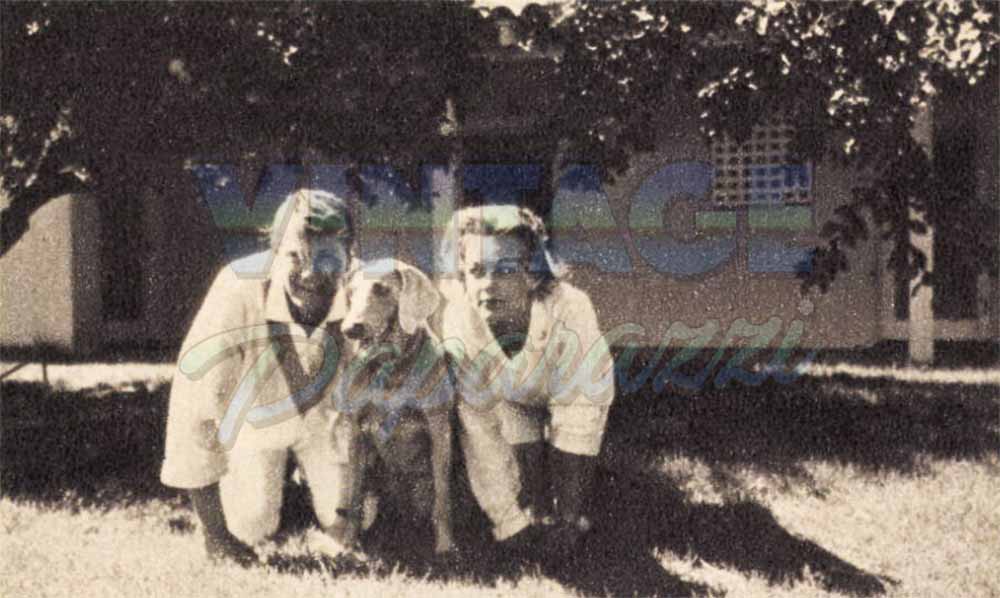

Besides, his career was zooming and he hardly had time to breathe. There was also the business of a new house—he’d rented one next to the apartment house where Hal Gefsky, who happened to be Lili Kardell’s agent, lived. He spent lots of time fixing it up and furnishing it. And then there was Sally Todd.
Sally, whom he’d met while busy shooting Surfside Six and Parrish, Sally, who had searched all over Hollywood and found the house for him next to Hal’s, Sally, with whom he’d swim in the pool next to his new place, or walk with on the beach, or take long drives with in the moonlight. Sally, who was his special girl that spring, and through the lazy summer, and on into the early fall.
In October phfft! His romance with Sally was over. He hit bottom. He felt empty, drained, useless. He tried dating a different girl every night, but it didn’t work.
He retreated into his house, into the music on his hi-fi, into himself. Every night after work he’d go straight home. He’d throw together something for supper. Then he’d turn on the hi-fi, switch the volume up high and escape into music and dreams.
One night, in late October, he slid the supper dishes into the sink, making a promise to himself to wash them before he went to bed. But first he wanted to relax; he switched on the hi-fi; music filled the room. But even with the volume all the way up, the sound of the Ray Charles record couldn’t drown out the noise of the rain beating down on the side of his house or the thunder crashing in the skies. The world outside was trying to get in.
He shivered and started a fire in the fire- place. Lightning flashed against his windowpanes, and the rain beat down furiously. More logs. He’d need a lot of them. He walked over to the entrance foyer where they were stacked and stooped over to pick some up. As he did this, he looked through the half-closed shutters and saw a car, a blue and white Ford, parked under his carport. Someone was sitting inside it.
“What a storm,” he thought. “Didn’t even hear the car drive in. The least I can do is ask him to come in and get warm.” He opened his front door and stuck his head out into the rain.
It wasn’t a “him” it was a “her.” Not just any her, but her. Lili Kardell!
He dashed out and opened the door of her car. He didn’t have time to think, to fumble for words, to give his tongue time to go dry in his mouth. “C’mon in and get warm,” he yelled above the rain. “Please come in, quick, or I’ll float away down the Street and never be heard from again. . . . Even if I go back inside, I’ll be afraid to be alone. Thunder scares me. You don’t want to be responsible for my dying of fright, do you?”
Not the most original or brilliant lines he’d ever delivered, but what can you expect when you’re competing with thunder and lightning and rain—and when you’re talking to a dream suddenly come true?
“No, I don’t want to be responsible,” Lili replied. Then, as he helped her out of the car she added, smiling, “And I’m really awfully cold. I’d love to wait in your place —until Hal comes home.”
When they got inside, Troy felt funny— as if he were suddenly a stranger in his own house. “I’ll get us something hot to drink,” he said, and went out into the kitchen and put the kettle on the stove.
He came back a little later with two huge mugs of hot coffee on a tray. As he entered the living room, Lili was standing with her back to him, warming her hands in front of the fireplace. Somehow he’d thought she was taller, but now he realized she couldn’t be more than five-feet-four. She turned slowly as she heard his footsteps. Whisps of blonde hair hung down on her forehead; one tiny raindrop inched slowly down her cheek.
“I’m a mess,” she said.
“No, no … you’re beautiful,” Troy replied.
A smile lit up her face, warmed the room. shut out the storm, and melted his shyness. They drank the coffee. Troy turned down the volume on the hi-fi. Then they began to talk.
It wasn’t glib chatter. It just seemed that each wanted to reveal himself to the other— directly, honestly, without sophisticated icing. If Lili’s agent came home to his apartment, she never knew it. If the same record played on the phonograph over and over again, Troy couldn’t hear or didn’t care. Each was absorbed completely in the other. For the rest of the world, the clock ticked on; for Lili Kardell and Troy Donahue time stood still.
Lili poured out her heart to him. She shared her memories of her girlhood in Sweden, and told him all about her parents who still lived there. He learned about her discovery of America and her attempts to establish herself in Hollywood as an actress.
She talked about Jimmy Dean—Jimmy, the boy she’d dated steadily before his death. She’d refused—even when offered large sums of money by editors and publishers—to allow her personal memories of her relationship with Jimmy to be put in print. But now, as the rain splashed down outside, she told Troy ali about Jimmy, and Troy felt humble to hear ali about the boy he’d always admired but never met.
Finally, she talked about Peter Paxton. This was the most difficult matter for her to discuss, and her words came slowly and painfully. She’d married Peter in the summer of 1958. The marriage had lasted just a year, and then they’d separated. Their divorce would become final next month.
That’s why she’d driven over to Hal’s place tonight. He was her agent and he was also her friend. She’d been feeling blue. Her life was a mess, all mixed up. She’d needed someone to talk to. It wasn’t good to keep your troubles locked inside yourself. No good at all.
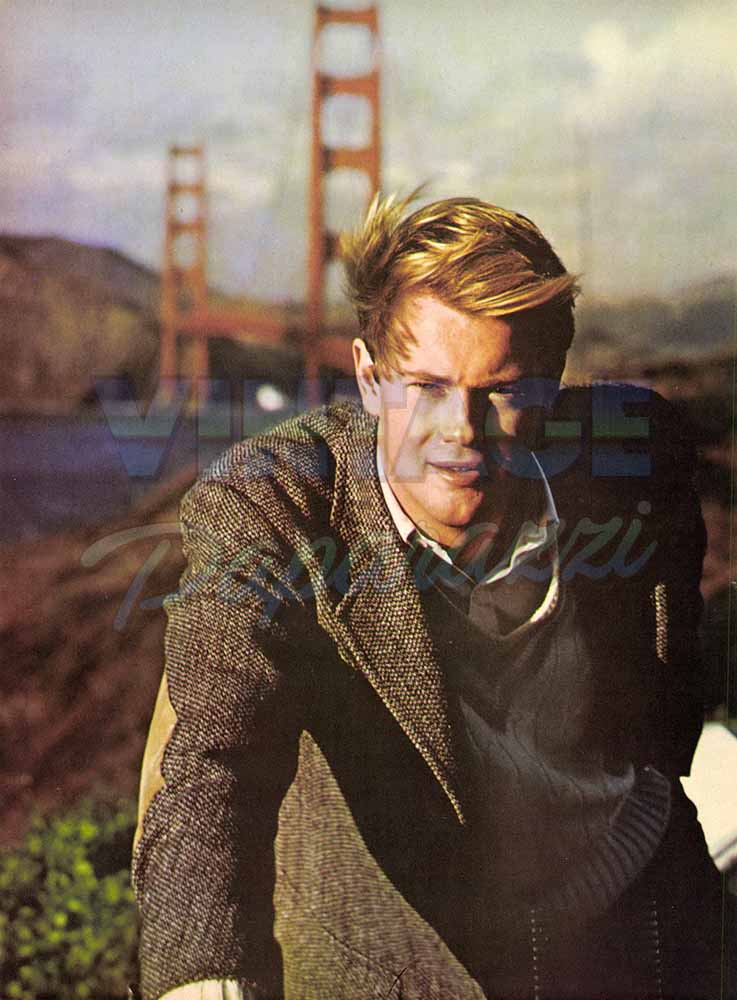
“Someone to talk to”—and suddenly Troy was no longer listening but began talking himself. The words poured out, torrents of words. He didn’t tell her about all the girls he’d known, about Nan Morris, Judi Meredith, Diane McBain, Connie Stevens, Joan Staley, Tuesday Weld, Sandra Dee and Sharon Hugueny, but he did tell her about Sally—and about how miserable it was to be lonely and alone.
Sometime during the night while he was talking, the agony of loneliness showed naked on his face. Lili’s hand reached out for his in sympathy and understanding. Troy’s fingers locked with hers. and he did not let go.
The embers in the fireplace were dead, but yet there was light in the room. Not just the dawn peeping in the window, but also the smile on Lili’s face. And the smile on Troy’s face, too.
That night they had dinner together— that night, and the next night, and all the other nights when they weren’t separated by location trips. In November they celebrated Thanksgiving together. In December, just before Troy left by plane for a personal appearance in Miami, he asked her not to date anyone else while he was away. She answered softly, “I don’t want to date anyone else again—ever.”
When Troy returned to Hollywood, they went Christmas shopping together. As Lili says, “Troy goes mad in Stores. He’s like a child. He wants to buy everything. When he went shopping, I’d tag along to keep him from going wild.”
Yet somehow Troy managed to sneak away from Lili on one of their shopping sprees and buy something specially for her which he gave her on Christmas Eve—a deep wine heavy ski sweater. Perhaps Lili “arranged” for him to sneak away, for while he was buying her present she was buying him gifts —a sweater, too, and a tape recorder. He really flipped over the tape recorder, and kept raving about it all through the smörgâsbord Christmas dinner she’d prepared herself—for the two of them, and for Troy’s mother, sister and grandmother.
On Christmas Day Troy gave Lili the biggest surprise of all. He placed a call to Sweden so that she could wish her parents a happy holiday. Just before the call went through, he asked Lili to write out a few lines for him in Swedish. After Lili had talked to them for a few minutes, he got on the phone and said, “Hej, jag ar Troy, hur mdr tıif Jag hoppâs vi skall mö tas snart. God jul ocr gott ny tt ar” (which roughly translated means: “Hi, I’m Troy, how are you? Merry Christmas and Happy New Year. I’m looking forward to seeing you soon”).
About this time the gossips and the advisers took over. The gossips, on the one hand, whispered that Troy would never stick to one girl, that he was in love with love, that he could never be serious. The advisers, on the other hand, thought that he was serious—that’s why they gave him advice. “Marriage will hurt your career,” they warned. “Your fans won’t stand for it. The day you get married your career will die.”
Troy thought about it, then one day in late January, just as Lili was about to stroke a three-foot putt towards the cup on the eighteenth hole of the El Dorado golf course at Palm Springs, he acted. He did what he had wanted to do ever since that night, more than four years before, when he first saw a beautiful blonde girl at a Halloween party. “Lili,” he asked, “will you marry me?”
The putter met the ball; the ball dribbled towards the cup and missed. Then Lili raised her head and smiled as if she’d made a hole-in-one. “Yes, yes . . . oh, yes, Troy, of course, you know I will,” she said.
They agreed to keep their engagement a secret, but when a rumor spread around that they’d eloped, they had to let the cat out of the bag. They were engaged. They were planning to be married as soon as possible, maybe within six months.
A close friend puts it this way: “In some ways it is a peculiar engagement. Usually the engagement period is the time for a young couple to shop for furniture, look for a place to live, meet each other’s in-laws, and make wedding arrangements. But this isn’t the way it is with Lili and Troy.”
“An engagement,” says Troy, “is a time in which two people who think they want to get married go through a period of finding out whether they’re actually ready for such a move. It is a period of great fondness, closeness and mutual understanding. If this period doesn’t continue, then they become just friends. … A year ago I wasn’t mature enough. I wasn’t ready to accept the responsibility of marriage. Today I am. I’m normal. Like everybody else in this frantic world I seek happiness. Love, true love, may not be right for the cynics, but it’s right for me.”
His is a provocative notion of what an engagement is, combined with a romantic conception of what love ought to be. It will take a wise and understanding girl to appreciate and accept the mixture of idealism and realism in a boy who makes a statement like, that. And Lili is such a girl.
Here’s what she says about Troy. “Why did I fail in love with Troy? Well, on that rainy night when we first talked together I suddenly realized this person whom I’d considered just another handsome boy-around-town was really warm, understanding, and had a really fine, sharp mind and a keen wit. … I know Troy well. I know his moods, his short-fused temper, his little-boy quality that sometimes makes him do and say things he doesn’t mean. In fact it’s this very combination of strong, grown-up man and charming boyishness that is so appealing about him.
“I love Troy and I understand him so well that I’ll tell you something, something that may shock you. When we’re married, if some night he doesn’t come home right on time, or if I hear he took some other girl to lunch or something, it might hurt me inside but I wouldn’t go off the deep end. Troy is very attractive, and girls naturally flock around him. Let’s face it; he’s human and he likes attention. But I know that I’m secure in his love, and even if he did something foolish I’d understand and forgive him. I’d know he wasn’t going to make a habit of staying out late, or anything, or else I would be mad. But if once in a while he should flirt or look elsewhere, I’d take it in stride. Our love is not the kind that will ever be tossed away.”
A boy who believes the engagement period is a testing-time for marriage and a girl who won’t mind if her husband flirts with others after they’re married: a boy who wants a big Church wedding, with all his relatives and all her relatives present (yes, he’ll bring them over from Sweden); and a girl who doesn’t have a ring yet and definitely doesn’t want a diamond (“they’re too expensive and there are more important things to spend money on”); Lili Kardell and Troy Donahue, may just confound the gossips by actually getting married and confuse the cynics by making their marriage work.
—BY LISA REYNOLDS
Troy is in Warners’ Parrish and Susan Slade. He can be seen weekly on ABC-TV’s Surfside Six.
It is a quote. MOTION PICTURE MAGAZINE JUNE 1961




